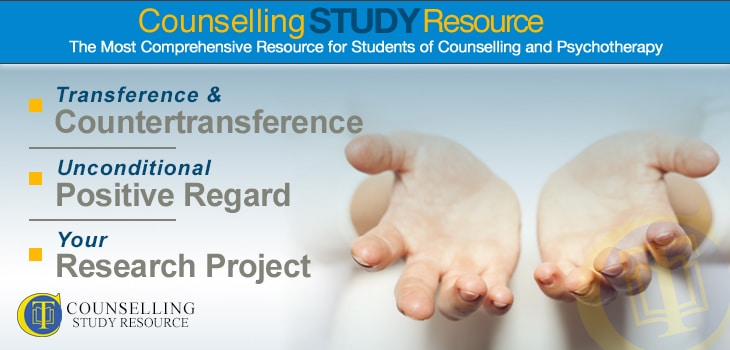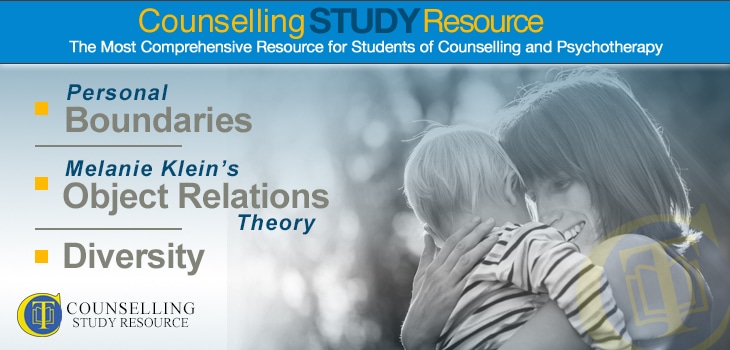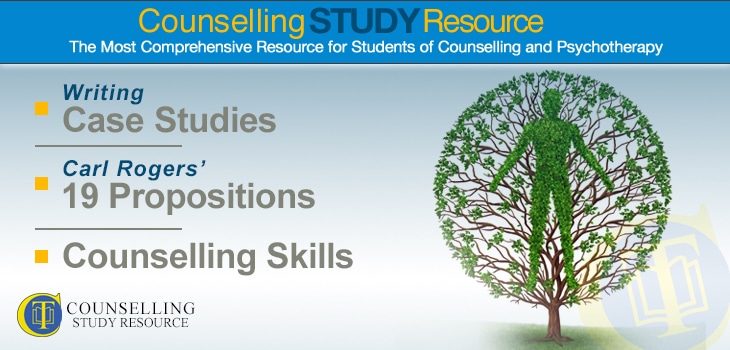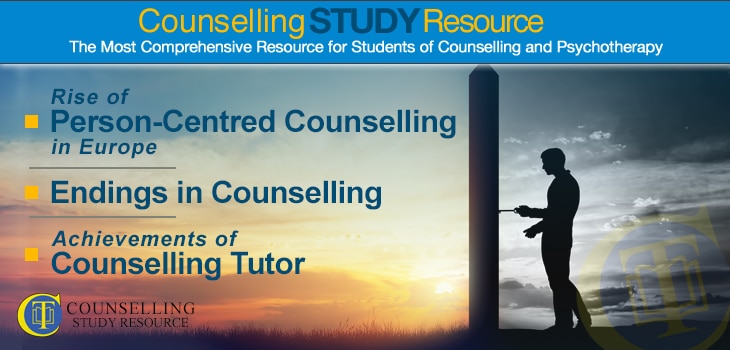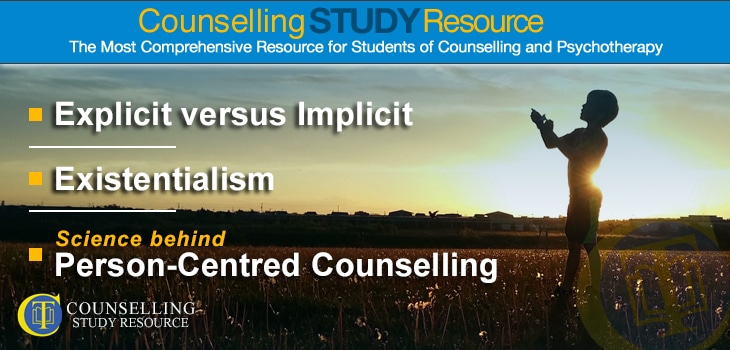![Counselling Tutor Podcast 047 – Rise of Person-Centred Counselling in Europe – Endings in Counselling – Achievements of Counselling Tutor]()
047 – Rise of Person-Centred Counselling in Europe – Endings in Counselling – Achievements of Counselling Tutor
![subscribe_itunes button small]()
In episode 47 of the Counselling Tutor Podcast—the finale of Season 2—Rory Lees-Oakes and Ken Kelly discuss how person-centred counselling first came to Europe. ‘Theory with Rory’ looks at endings in counselling. Finally, the presenters review the achievements of Counselling Tutor over the last 12 months.
Free Download: Endings in Counselling
Rise of Person-Centred Counselling in Europe (starts at 2.56 mins)
How did person-centred therapy (which began in the USA) come to Europe and become such a strong modality here?
At the end of the Second World War, Europe was in a parlous state after all the bombings, etc. In psychotherapy, the dominant modality here was psychoanalysis, Freud having moved to London.
When the war ended, the US factories turned to producing consumer goods and the American economy boomed, fostering a culture of optimism in which alternative approaches flourished. It was in this environment that humanistic ideas became the ‘third force in psychology’ (as Abraham Maslow put it), and Carl Rogers’ ideas on counselling began to take shape.
The three core conditions—empathy, congruence and unconditional positive regard—appealed to the UK public sector, and our education and health services were built on these. Interestingly, India is now adopting the same values in developing its own public services.
As a country becomes more developed, mental health issues and services grow in relevance, as before that practical needs (e.g., for food and shelter) tend to take priority, as Maslow’s hierarchy of needs illustrates. As a country develops, social isolation tends also to increase. The basic tenets of person-centred counselling—providing try caring and deep listening—are of huge value in this situation.
Endings in Counselling (starts at 14.14 mins)
Endings are by nature difficult. In counselling, they may be planned or unplanned – coming about, for example, as a result of the client experiencing health problems, family changes or commitments, new work patterns or even simply not ‘clicking’ with the therapist.
It’s really important to get the ending right in counselling. An abrupt ending can leave the therapist feeling deskilled and confused. Without a proper ending, the client can be left feeling vulnerable, discounted, confused and unable to re-engage with therapy in future. Badly handled endings are also a major cause of complaints to professional bodies in counselling and psychotherapy.
Rory offers a number of good-practice tips on endings in counselling:
- Always plan ahead for the ending of therapy. If you are working in a service where there is a limited number of sessions, make sure that you explain this to the client during contracting. If there is no such limit (e.g. if you’re working in private practice), it is still useful to talk in the first session about the client’s expectations of therapy, to introduce the idea that you don’t assume therapy will go on and on. This helps to avoid the client becoming dependent on the counsellor.
- Remind the client each week of which number session you are on, and make it clear when the last session is, so that they are not taken by surprise by this.
- Always explore with clients how they feel about endings. It can be useful too to share how you feel about ending, including pointing out the differences you observe in them between the first and last sessions.
- If you struggle with endings, take this to supervision and/or personal counselling, exploring the endings you have experienced in your own life.
- If ending with one particular client seems harder for you than usual, ask yourself whether transference could be taking place, evoking memories of a past ending that you found difficult.
You can download a free handout by Rory on endings in counselling.
Free Download: Endings in Counselling
Achievements of Counselling Tutor (starts at 21.55 mins)
Ken and Rory review the incredible success of Counselling Tutor over the last 12 months. The service has proved enormously popular, with its Facebook group (where you can discuss issues with other students of counselling and psychotherapy), free resources on the Counselling Tutor website, and paid-for support available through the Counselling Study Resource (of which we have retained 86% of the original members, illustrating their satisfaction with the service).
Another big achievement this year has been the launch of Ken’s book, Basic Counselling Skills: A Student Guide, hundreds of copies of which have already been sold.
We look forward with excitement to the next academic year, starting in September 2017!
Links and Resources
Counselling Study Resource
Counselling Tutor Facebook group
Counselling Tutor website
Basic Counselling Skills: A Student Guide




